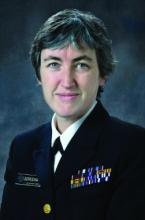A rare enterovirus caused outbreaks of severe pediatric respiratory illness in two US cities and may be active elsewhere, the Centers for Disease Control and Prevention reported.
The CDC found enterovirus D68 (EV-D68) in 19 of 22 (86%) samples it tested from patients in Kansas City, Mo., and in 11 of 14 (79%) samples from Chicago, and is testing samples from other states. Health officials from Alabama, Colorado, Georgia, Illinois, Iowa, Kansas, Kentucky, Missouri, Ohio, Oklahoma, and Utah have contacted the CDC about confirmed cases or suspected cases that are being tested, a CDC spokesman confirmed.
The outbreaks first were noticed in mid-August in Kansas City, Mo., where Children’s Mercy Hospital reported a 25%-30% increase beyond normal seasonal levels in the numbers of children visiting emergency departments and urgent care centers and being hospitalized for respiratory illness, the hospital said in a letter to community physicians. "To date, we have nearly 500 suspected cases including 61 children who were admitted to our intensive care unit presumptively with this viral infection," the letter said.
The University of Chicago Medicine Comer Children’s Hospital contacted the CDC a few days later about a similar outbreak there.
CDC testing shows "it’s not a new strain" of enterovirus, but the same EV-D68 reported in previous years in small numbers in the United States and other countries, Dr. Anne Schuchat said in a press briefing. Dr. Schuchat is director of the National Center for Immunization and Respiratory Diseases.
U.S. national surveillance systems received only 79 reports of EV-D68 during 2009-2013, and small clusters of respiratory illness were associated with EV-D68 infection in 2009-2010, the CDC reported (MMWR 2014;63:1-2). There is no vaccine or specific treatment for EV-D68 infection. Treatment consists of supportive care.
"Clinics across the country need to be on the alert and consider this in the differential diagnosis" of unexplained respiratory illnesses, Dr. Schuchat said. "We believe the unusual occurrences in Kansas City and Chicago may be occurring elsewhere in the weeks ahead." Clinicians should contact local and state health departments if they suspect an outbreak.
No patients in the recent outbreaks have died of the infection, and no cases have been confirmed in adults. The patients affected have been 6 weeks to 16 years of age, with a median age of 4-5 years, she said.
Enteroviruses can cause respiratory illness, febrile rash, and neurologic illness. EV-D68 is thought to cause primarily respiratory illness, but "we don’t know as much about it as we do of other respiratory viruses," Dr. Schuchat said. "The full spectrum of all the illnesses it can cause are not well defined."
More than half of the 30 patients in Kansas City and Chicago with confirmed EV-D68 had a history of asthma or wheezing. Only seven of the patients were febrile, the CDC reported.
Late summer and fall are common times for respiratory infections of many kinds. Patient specimens tested by the CDC that did not find EV-D68 detected rhinovirus or other common respiratory viruses, or were negative for infection.
Physicians should counsel parents to seek medical attention if a child develops difficulty breathing, but not be alarmed by every runny nose or sniffles, Dr. Schuchat said.
"Most of the runny noses out there are not going to turn into this," Dr. Schuchat said.
Keeping asthma under control and getting vaccinated for influenza are important, especially to avoid an overlay of problems if EV-D68 infection leads to illness, she added.
Dr. Schuchat reported having no financial disclosures.
On Twitter @sherryboschert


